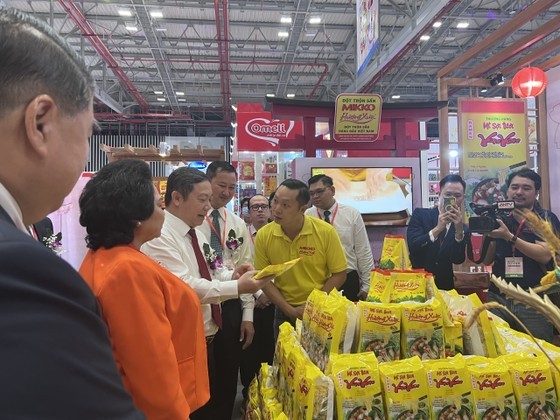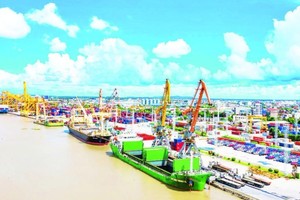 |
Trade promotion activities are strengthened to seek export orders for domestic enterprises. |
During the meeting, Mr. Do Thang Hai, Deputy Minister of Industry and Trade, disclosed that in the first seven months of 2023, the export orders for crucial sectors like textiles and garments, footwear, wood, and wood products had undergone substantial declines, with figures reaching US$18.9 billion (down 15.1 percent), $11.7 billion (down 17 percent), and $7.2 billion (down 26.2 percent), respectively, compared to the same period last year.
The declines are attributed to the tightening monetary policies and prolonged increases in interest rates and inflation, resulting in a substantial reduction in global consumer demand, particularly in the three primary export markets for Vietnamese businesses, namely Europe, the US, and Japan.
Mr. Tran Ngoc Quan, Vietnam's Commercial Counselor in Belgium and Europe, also revealed that Vietnamese export enterprises are encountering fierce competition not just in terms of quantity but also regarding product quality and pricing from businesses from China, Bangladesh, and Turkey.
From a different angle, the representative of the Vietnam Timber and Forest Product Association said that in the past three years, Vietnam's exports had seen robust growth. Notably, export turnover of wood and wood products had consistently achieved double-digit growth, showcasing the ability of Vietnamese businesses to swiftly leverage the benefits of free trade agreements. However, when export markets introduce obstacles linked to new standards and technologies, particularly those pertaining to the circular economy, Vietnamese enterprises tend to adapt at a slower pace, leading to a notable impact on export activities.
For instance, for exported wood products, companies are required to demonstrate that the wood originates from sustainably managed forests. Similarly, for leather and footwear products, there is a requirement to use renewable materials for the leather. Manufacturing plants must undergo a transition to clean energy to comply with carbon neutrality criteria.
In the textile and garment industry, export enterprises are required to showcase solutions for mitigating the negative impact of fast fashion and demonstrate their capability to fulfill extended producer responsibility, which includes collecting and recycling exported textile and garment products.
Vietnam's Commercial Counselor in Belgium and Europe emphasizes that besides addressing the technical barriers of export markets, businesses must invest in research activities to innovate and create new products to reverse the downward trend in exports.
The Ministry of Industry and Trade has announced that during September and October 2023, there will be a surge in trade promotion activities aimed at export markets. The ministry will assist export enterprises in collaborating with diverse distributors, retailers, investors, and importers in locations such as North Carolina, Washington DC, and New York in the US, Slovenia, Bulgaria, Indonesia, Canada, and Chile. Businesses are encouraged to proactively engage with the Ministry of Industry and Trade to register for participation in these export promotion delegations.
























